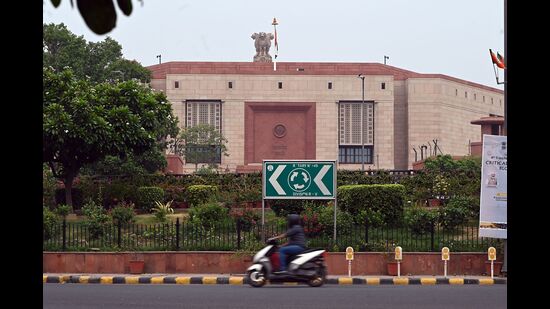Jul 06, 2024 09:30 PM IST
Is the Lok Sabha living up to our expectations? What changes are needed to convince the Opposition that the voice of the Indian people is given time and, therefore, adequately heard?
Now that we’ve elected the 18th Lok Sabha, it’s time to raise two fundamental questions. First, is the Lok Sabha living up to our expectations? Second, what changes are needed to convince the Opposition that the voice of the Indian people — and not just that of the ruling parties — is given time and, therefore, adequately heard?

Facts published by PRS Legislative Research reveal the 17th Lok Sabha worked for only 1,354 hours. That’s even lower than the 1,615 hours for the 16th, which was already 40% lower than the average of all full-term Lok Sabhas. In fact, 11 out of its 15 sessions were adjourned early. And with just 274 sittings, the 17th had the fewest out of all full-term Lok Sabhas.
In comparison, the first Lok Sabha sat for 135 days a year. The 17th only managed 55. This clearly affected the way legislation was handled. Most Bills were passed within two weeks of their introduction, but a sizeable 35% with less than an hour of discussion. And only 16% were referred to parliamentary committees for scrutiny. That’s less than the previous three Lok Sabhas.
So, not only are the hours the Lok Sabha spends at work shrinking but, within that, its ability to meaningfully scrutinise and debate legislation is diminishing. Since that is one of the most important functions of the Lok Sabha, we can unhesitatingly conclude it’s not living up to our expectations. The remedy is simple and straightforward — the Lok Sabhas must sit for a fixed minimum number of days each year and all bills must be sent to parliamentary committees for detailed scrutiny before they are passed.
The other — equally critical — function of the Lok Sabha is to hold the government to account. This is where the Opposition claim that their voice is not being heard needs to be addressed. Unless and until it is, the government will not be meaningfully questioned and challenged. So how do we achieve this?
One obvious solution is to adapt the practice of the House of Commons and ensure that on a certain number of days in each session the agenda is decided by the Opposition. In Britain, they’re called opposition days and there are 20 in each parliamentary session. Seventeen for the principal opposition party and three for the second-biggest.
A second British practice we could adopt is Prime Minister’s Questions. This is a dedicated half hour, on a fixed day each week, when the Prime Minister answers questions from the opposite benches including, at least, half a dozen asked by the Leader of the Opposition. PMQs, as it’s called in the UK, has obvious appeal. It’s a moment of drama which can either reveal the PM and LoP at their best or show them up as weak, uninformed and ineffective. It’s also a window for the rest of the country to see and judge how their leaders perform. In short, it provides proof of whether democracy is working or stumbling.
If adopted, these conventions would increase trust. They would give the Opposition a stake with a sense of their real contribution and they would give the Indian people confidence that different opinions and arguments are being canvassed and discussed.
Finally, if the missing element of trust is to be truly ensured, we also need to address the position of the Speaker. Whoever is chosen must immediately resign from their party. Only then can we believe the person is impartial and non-partisan. And if he or she wishes to continue for the next Lok Sabha, their election must be unopposed. Of course, a lot will still depend on the character and behaviour of the Speaker, but the obvious infirmities must be removed.
These are obvious remedies, but they’ll only happen if the government accepts them. On its own, the Opposition can just recommend, as the Congress manifesto did. But if the BJP baulks at accepting them, can it continue to claim India is the mother of democracy? In that event wouldn’t step-mother be more accurate?
Karan Thapar is the author of Devil’s Advocate: The Untold Story. The views expressed are personal


